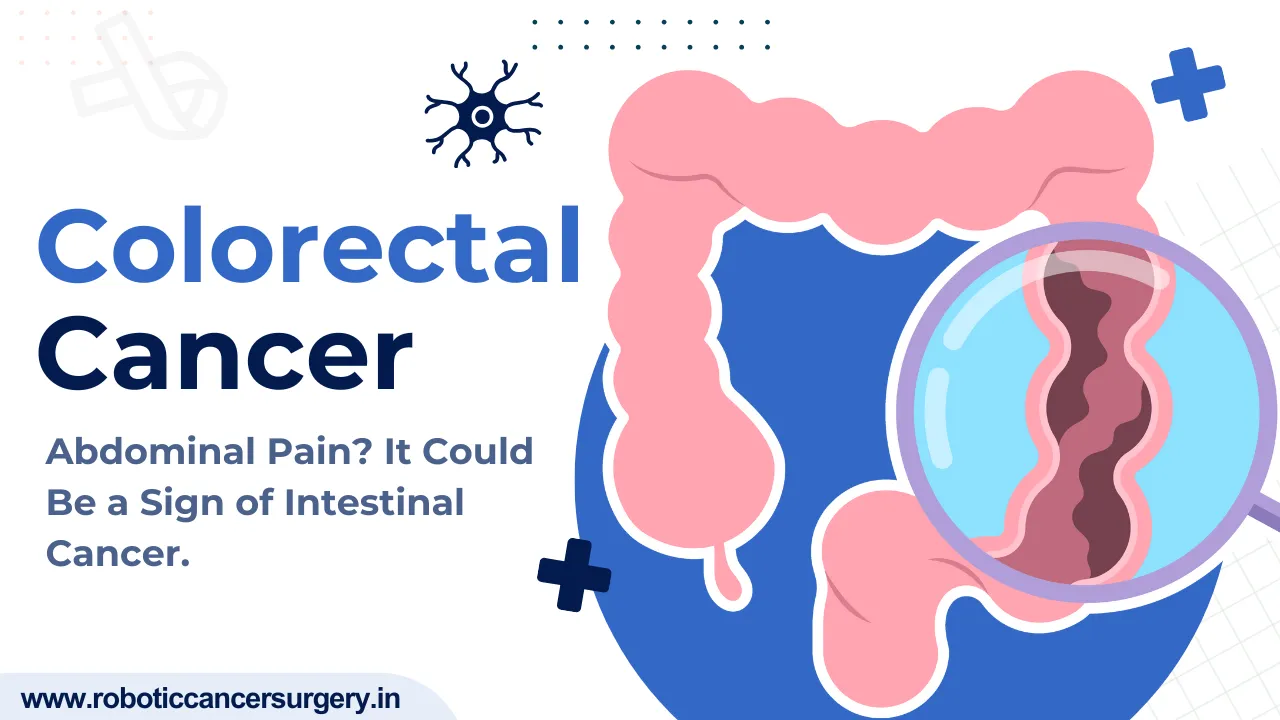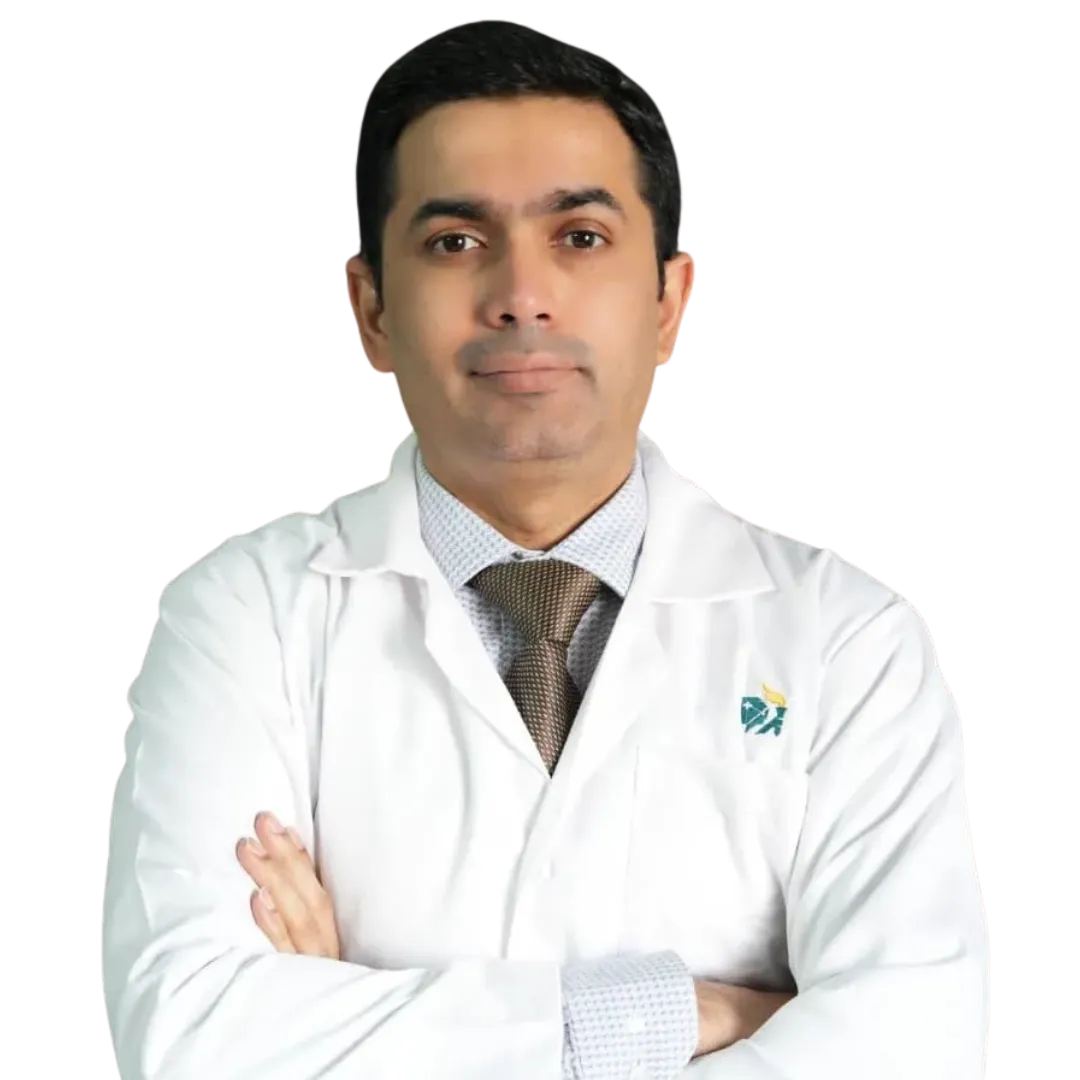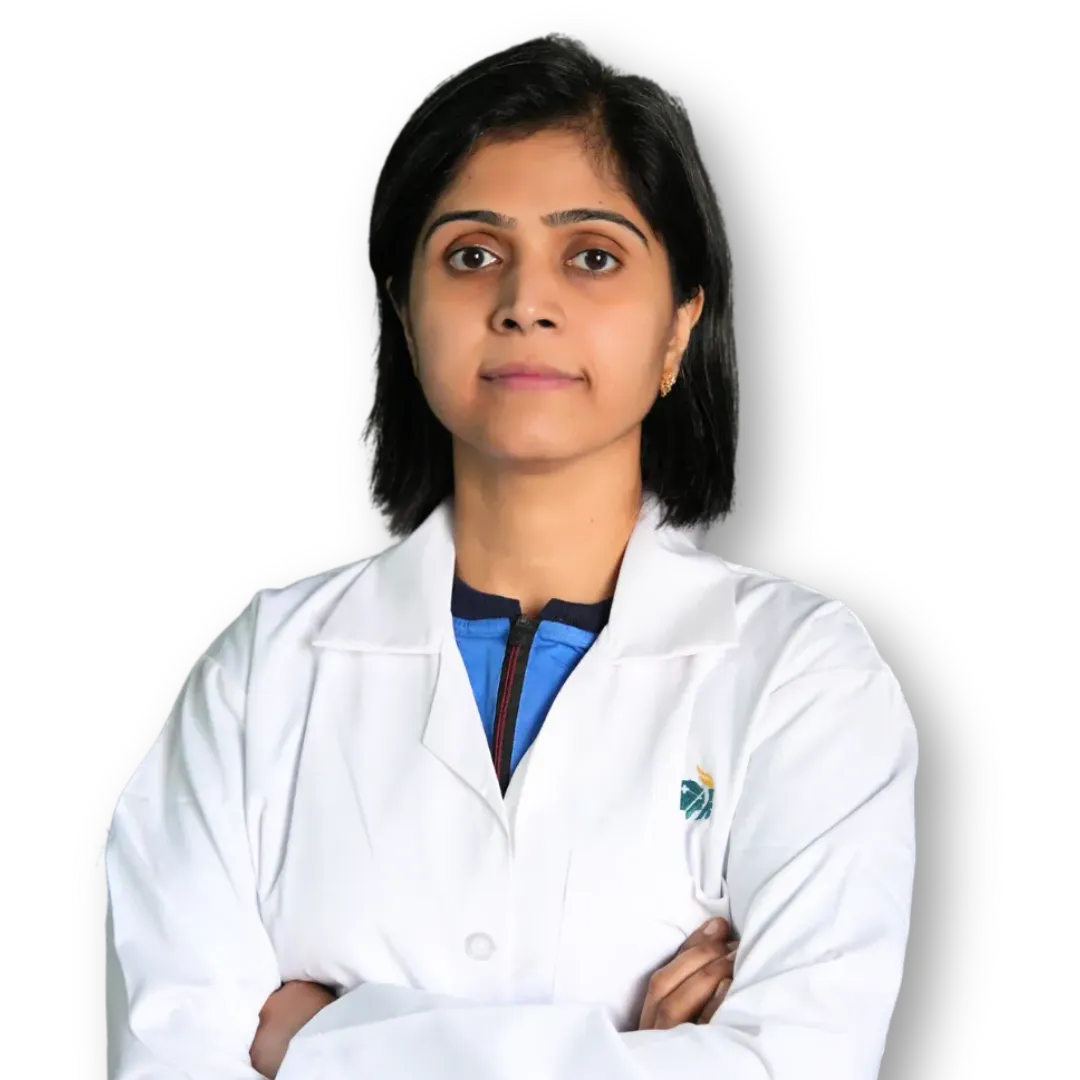Colorectal Cancer
Irregular pain in your abdomen? This could be a sign of cancer related to the intestines.
Colorectal cancer is a serious disease, but here’s the good news: if we catch it early, it can often be treated very successfully. In this article, we will explain everything you need to know about this disease in easy-to-understand language. We’ll cover what causes it, the signs to look out for, how doctors check for it, and the available treatments.
Summary
- Causes
- Symptoms
- Diagnosis

Facts
- Colorectal cancer is the third most common cancer in the world.
- It usually begins as small lumps called polyps, which can become cancer over time.
- Men and women have an equal chance of getting colorectal cancer.
- Screening tests like colonoscopy can find this cancer early, even before symptoms start.
- Eating more fiber-rich foods and doing regular exercise can lower the risk of getting colorectal cancer.
Know More
- Colorectal cancer grows slowly and can take years to develop.
- It usually begins as harmless polyps on the inner wall of the colon or rectum.
- Regular screening, especially after 50 years of age, helps find these polyps early before they turn into cancer.
- If found early, colorectal cancer can be treated successfully, making early screening very important for saving lives.
Symptoms
- Changes in Bowel Habits
- Blood in the Stool
- Unexplained Weight Loss
- Abdominal Pain
- Weakness or Fatigue
- Persistent Diarrhea or Constipation
- Feeling That the Bowel Doesn’t Empty Completely
- List ItemCramping or Bloating
- Narrow Stools
- Rectal Bleeding
⦿ Changes in Bowel Habits – You may have frequent diarrhea, constipation, or feel like your bowel isn’t fully empty after using the bathroom.
⦿ Blood in the Stool – Blood may be seen in the stool, either bright red or very dark, which could mean bleeding inside the colon.
⦿ Unexplained Weight Loss – Losing weight suddenly without any change in diet or exercise can be a warning sign.
⦿ Abdominal Pain – Pain or cramping in the stomach or lower abdomen that doesn’t go away.
⦿ Weakness or Fatigue – Feeling weak or tired, often caused by blood loss or the body fighting the disease.
⦿ Persistent Diarrhea or Constipation – Long-term problems with bowel movements, either loose stools or difficulty passing them.
⦿ Feeling of Incomplete Bowel Emptying – Constant urge to use the bathroom, even after finishing.
⦿ Cramping or Bloating – Ongoing discomfort or bloating in the stomach, which may get worse over time.
⦿ Narrow Stools – Stools that look thinner than usual, which might mean there’s a blockage in the colon.
⦿ Rectal Bleeding – Seeing blood in the toilet or on toilet paper after a bowel movement.
Causes
- Age (Above 50)
- Family History
- Diet with Lots of Red or Processed Meat
- Low Fiber Diet
- Lack of Exercise
- Inflammatory Bowel Diseases (IBD)
- Obesity
- Smoking
- Heavy Alcohol Use
- Type 2 Diabetes
⦿ Age (Above 50) – Most cases happen in people older than 50, but it can occur at any age.
⦿ Family History – If close family members have had colorectal cancer, your risk increases.
⦿ Diet with Lots of Red or Processed Meat – Eating too much processed food or red meat can raise the risk.
⦿ Low Fiber Diet – Not eating enough fiber can cause digestive issues, which may increase cancer risk.
⦿ Lack of Exercise – A sedentary lifestyle without regular physical activity increases the chance of developing cancer.
⦿ Inflammatory Bowel Diseases (IBD) – Conditions like Crohn’s disease or ulcerative colitis increase long-term inflammation, raising cancer risk.
⦿ Obesity – Being overweight is linked to a higher chance of getting colorectal and other cancers.
⦿ Smoking – Long-term smoking increases the risk of many cancers, including colorectal cancer.
⦿ Heavy Alcohol Use – Drinking too much alcohol raises the risk of colorectal cancer.
⦿ Type 2 Diabetes – People with diabetes often have a higher risk of getting colorectal cancer.
Diagnosis
- Colonoscopy
- Biopsy
- Fecal Occult Blood Test (FOBT)
- CT Colonography
- Flexible Sigmoidoscopy
- Blood Tests
- Stool DNA Test
- Imaging Tests (CT, MRI)
- CEA Test
- Digital Rectal Exam
⦿ Colonoscopy – A procedure using a small camera to check the colon and rectum for any unusual growths or polyps.
⦿ Biopsy – Tissue taken during a colonoscopy is tested to check for cancer cells.
⦿ Fecal Occult Blood Test (FOBT) – A lab test to find hidden blood in stool, which can signal cancer.
⦿ CT Colonography – A special X-ray scan that shows detailed images of the colon.
⦿ Flexible Sigmoidoscopy – Similar to a colonoscopy but checks only the rectum and lower colon.
⦿ Blood Tests – Done to find cancer-related markers in the blood.
⦿ Stool DNA Test – Detects abnormal DNA in the stool, which can indicate cancer.
⦿ Imaging Tests (CT, MRI) – Used to see if cancer has spread to other parts of the body.
⦿ CEA Test – A blood test to find proteins linked with cancer.
⦿ Digital Rectal Exam – A physical check by a doctor to feel for abnormalities in the rectum.
Treatments
- Surgery
- Chemotherapy
- Radiation Therapy
- Targeted Therapy
- Immunotherapy
- Ablation or Embolization
- Robotic Surgery
- Palliative Care
- Clinical Trials
- Lifestyle Changes
⦿ Surgery – The main treatment, especially in early stages, involves removing the cancerous part.
⦿ Chemotherapy – Medicines are given to destroy cancer cells, often after surgery.
⦿ Radiation Therapy – High-energy rays are used to kill cancer cells, mostly for rectal cancer.
⦿ Targeted Therapy – Special medicines attack cancer cells while causing less harm to normal cells.
⦿ Immunotherapy – Boosts the immune system to better recognize and fight cancer.
⦿ Ablation or Embolization – Used to treat small tumors when cancer has spread to other organs.
⦿ Robotic Surgery – Minimally invasive surgery with faster recovery and less pain.
⦿ Palliative Care – Aims to relieve symptoms and improve quality of life in advanced cases.
⦿ Clinical Trials – Offer access to new treatments that are being researched.
⦿ Lifestyle Changes – Healthy eating and regular exercise can aid recovery and reduce recurrence risk.
Treatment Options and Outcomes
| Treatment | Indications | Common Side Effects | Expected Outcomes |
|---|---|---|---|
| Surgery | Early-stage cancer, localized tumors | Pain, infection, bowel changes | Potentially curative if localized |
| Chemotherapy | Advanced or metastatic cancer | Nausea, fatigue, hair loss | Can shrink tumors, prolong survival |
| Radiation Therapy | Rectal cancer or inoperable tumors | Skin irritation, fatigue, bowel issues | Tumor shrinkage, symptom control |
| Targeted Therapy | Advanced cancer with specific mutations | Diarrhea, high blood pressure, fatigue | Tumor control, slow progression |
| Immunotherapy | Advanced cancer with immune markers | Immune-related side effects (inflammation) | Long-term tumor control in some patients |
Questions to Ask Your Doctor
- What screening tests are appropriate for my age and risk factors?
- What are the side effects of the treatments you recommend?
- How can I lower my risk of developing colorectal cancer?
- Should my family members be tested if I am diagnosed?
- What lifestyle changes can I make to support my recovery?
Frequently Asked Questions
When is colonoscopy required?
Is colorectal cancer hereditary?
Is colon cancer preventable?
Can colorectal cancer cause back pain?
Can colorectal cancer be treated?
Where is colon cancer located?
How common is colon cancer in India?
Is colon and rectal cancer the same?
How much time does colon cancer take to develop?
How does colorectal cancer develop?

Written by
Dr. Harsh Shah
MS, MCh (G I cancer Surgeon)
Dr. Harsh Shah is a renowned GI and HPB Robotic Cancer Surgeon in Ahmedabad.

Reviewed by
Dr. Swati Shah
MS, DrNB (Surgical Oncology)
Dr. Swati Shah is a Robotic Uro and Gynecological Cancer Surgeon in Ahmedabad.
